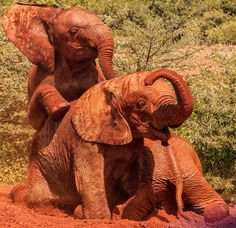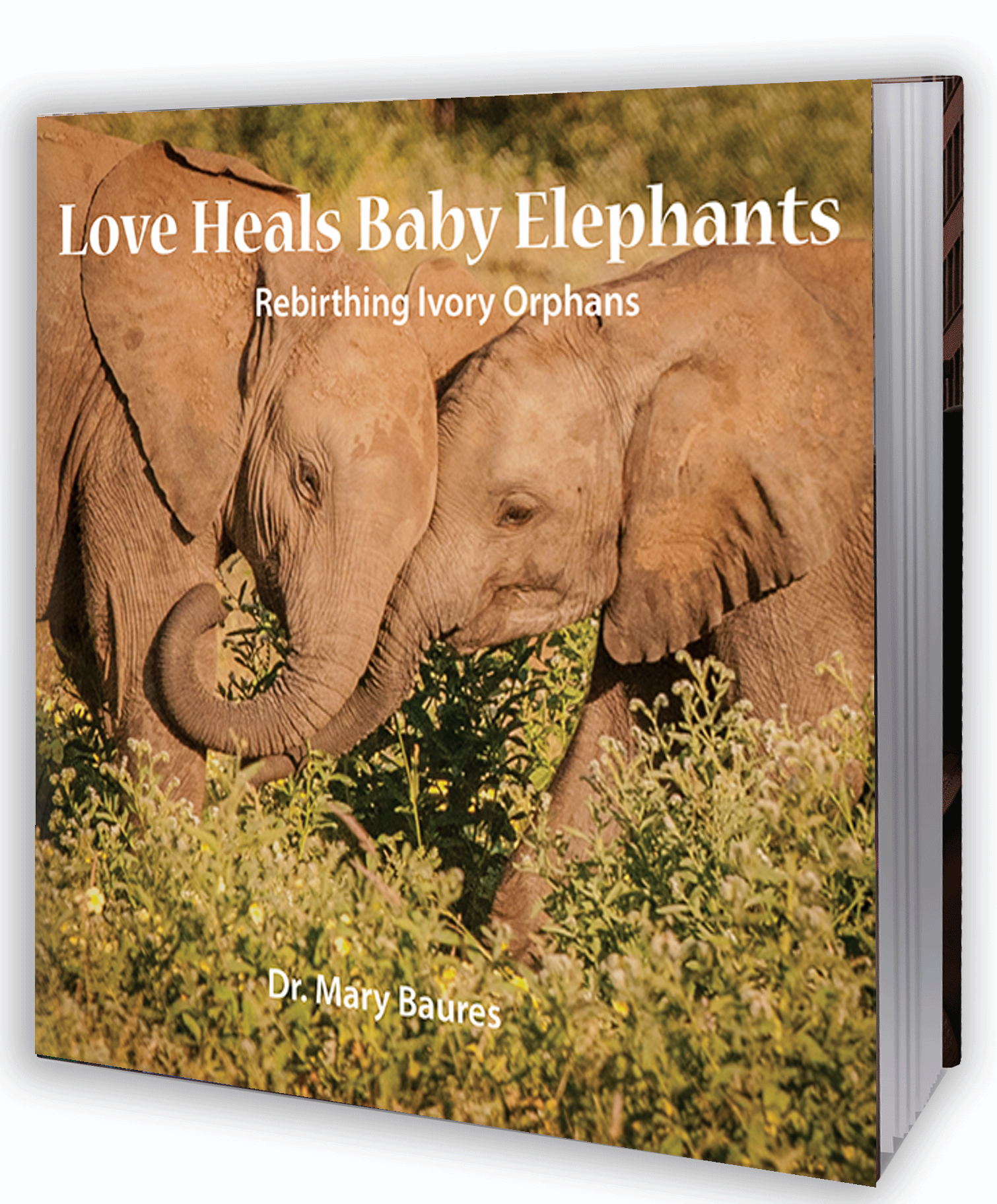I recently learned of what I could tell is a very moving book about baby elephants that have been orphaned as a result of poachers slaughtering their parents for their ivory. And indeed it is. Melanie Davis of my book review team writes this review of the book:
Review of Love Heals Baby Elephants
The true life stories of baby elephants orphaned by the ongoing carnage that is trophy hunting are captured in Love Heals Baby Elephants: Rebirthing Ivory Orphans. Dr. Mary Baures opens hearts and minds with her painful, passionate and hopeful book.
Amidst the stories of these small elephants, who have names and personalities, are numerous color photographs which Dr. Baures took herself while traveling through Africa to adopt an elephant, leading her to write the book. Through these pictures and stories, powerful examples of hope and healing come out of the suffering and tragedy experienced by some of our world’s most peaceful creatures.
Just reading the introduction of Love Heals Baby Elephants breaks your heart as you learn of the plight of elephants, targeted by hunters seeking the wealth that comes from their ivory, with no regard for the life behind these prized possessions, or the small ones left behind, traumatized by witnessing the bloody and violent destruction of their mothers. But Dr. Baures doesn’t leave you without hope or a reason to keep reading, as you discover the miraculous healing that happens simply by caring for and tending to the needs of these elephant babies. As you read, you also recognize just how many people support these orphaned elephants personally and collectively as the world becomes more aware of their plight.
 Early in the book, Dr. Baures demonstrates how elephants are “kindred spirits.” She says, “Like humans, they have long life spans, similar developmental stages, and complex neurobiology. They have empathy and come to the aid of others in distress.” It is amazing to learn how intelligent, compassionate and human-like elephants truly are. Some of these impressions come from witnessing how elephants interact with each other and the response they have to love, either from a fellow elephant, another animal or even a human.
Early in the book, Dr. Baures demonstrates how elephants are “kindred spirits.” She says, “Like humans, they have long life spans, similar developmental stages, and complex neurobiology. They have empathy and come to the aid of others in distress.” It is amazing to learn how intelligent, compassionate and human-like elephants truly are. Some of these impressions come from witnessing how elephants interact with each other and the response they have to love, either from a fellow elephant, another animal or even a human.
However, this idea is also reinforced by Dr. Baures’ personification of the elephants as she occasionally dramatizes her stories to the point of describing what they are thinking, such as remembering or having nightmares of a mother’s execution, articulating for them the fear these orphans experience being left alone, beside the dead or dying carcass of their loved one. Such personification might come across as outside of scientific journaling, delving into the realm of a fiction book, if not for the vast evidence of such emotions displayed by the baby elephants from the time they are first rescued until they find joy again in play and the connection of their elephant society.
After telling the colorful stories of the healing of many elephants, and a few other “characters” such as Maxwell the blind Rhino, Dr Baures becomes more serious as she addresses the political and social issues leading to what she has termed the “Holocaust of Elephants.” She points to the illegal wildlife trade which has become the fourth largest criminal activity in the world with annual profits of $20 billion. In this trade, ivory has become a bankroll for terror as it finances the armies spreading fear, instability and death in African communities.
Dr. Baurers also cites the vanity of humans as the driving force behind the value of ivory material used in a variety of products which ownership parades their wealth. The greater the awareness of the horrors associated with the obtaining of ivory, the faster it can be moved to the status of fur coats, where they lost their appeal once animal rights groups revealed the suffering of the animals to whom the coats originally belonged. With the recent viral outrage in social media associated with the killing of Cecil the Lion, Dr. Baurer believes change is coming.
Thank you, Melanie! She is the bestselling author of The Triumph Book: HEROES.

